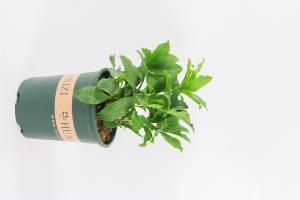Introduction
Tap water is a readily available and convenient source of water for our daily lives. However, many people often wonder whether it is safe for plants. There are mixed opinions on whether tap water harms plants or not. In this article, we will explore this topic in detail and provide a definitive answer to this question.
The Composition of Tap Water
The composition of tap water varies from place to place. However, in general, tap water contains a range of minerals and chemicals such as chlorine, fluoride, and calcium. While these minerals and chemicals are safe for human consumption, they can have different effects on plants.
The Effects of Tap Water on Plants
Many factors determine whether tap water harms plants or not. One of the main factors is the quality of the water. If the tap water is high in chlorine or fluoride, it can cause damage to the plants. Chlorine, in particular, can hinder the growth of beneficial bacteria in the soil and make it difficult for the plants to absorb nutrients. Additionally, high levels of calcium can lead to the buildup of salts in the soil, which can cause the plants to dry out.
How to Determine If Tap Water is Harmful to Plants
It is essential to test the water before using it on plants. One way to do this is to use a testing kit. The kit will measure the levels of minerals and chemicals, such as chlorine and fluoride, in the water. Another way to determine if tap water is harmful to plants is to observe their growth. If the plants are not growing as expected, or if they appear stunted, it may be due to the quality of the water.
Alternatives to Tap Water
If the tap water is harmful to plants, there are several alternatives that one can use. Rainwater is an excellent source of water for plants as it is naturally free of chemicals and minerals. Another option is distilled water, which has been processed to remove all chemical impurities.
Conclusion
In conclusion, tap water can harm plants if it contains high levels of chemicals such as chlorine and fluoride. However, in most cases, tap water is safe for plants. To ensure that tap water is safe for plants, it is essential to test the water before using it. If tap water is not suitable for plants, there are several alternatives such as rainwater and distilled water that can be used. By following these guidelines, we can ensure that our plants grow healthy and strong.

 how many times do yo...
how many times do yo... how many planted tre...
how many planted tre... how many pine trees ...
how many pine trees ... how many pecan trees...
how many pecan trees... how many plants comp...
how many plants comp... how many plants can ...
how many plants can ... how many plants and ...
how many plants and ... how many pepper plan...
how many pepper plan...































